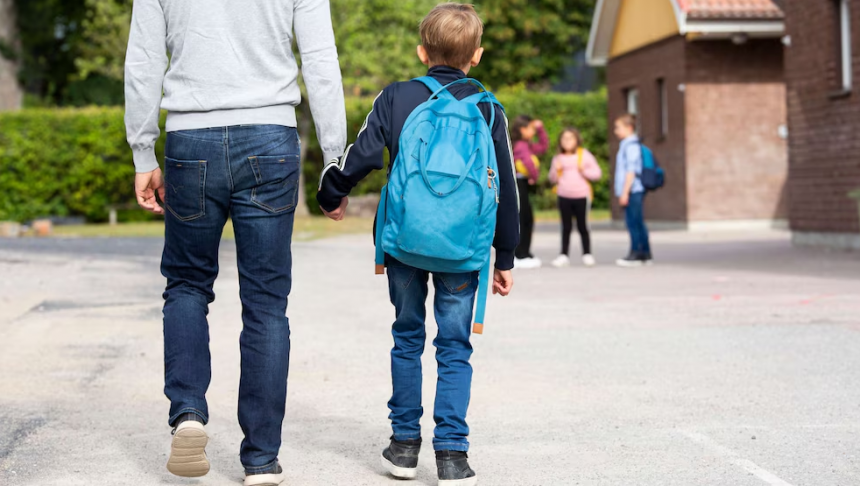She was young; she was energetic; she was hardworking. Her studies had a smooth sailing with elegance, passion and hope from her acting as the driving force. Little did the girl’s well-wishers know that was a lull before the storm in her life. In my neighborhood, a girl student has passed away. The innocent, it is assumed, killed herself in the wake of the recent 12th standard results by the JKBOSE. Among many other factors, inadequate or irresponsible parenting is a major source of suicides for children in general and students in particular.
Today, children are brought up very differently than about twenty to twenty-five years ago. Now children spend time on their computers and cell phones. However, the children of yesteryears used to play outside in open, an exercise which enriched them with the wealth of happiness and health. That also enabled them to face failures with patience and be mentally strong.
Very useful is the modern technology but it prevents children from playing outdoors, exercising, socializing, and experiencing a sense of belonging to a community. An all- important step for successful parenting is to return to basics so that children play and enjoy not good health. Also learn discipline, tolerance and cooperation.
Notably, educational and moral institutions can better teach the significance of sports for a child. In most schools, sports facilities for the children are awaiting — no playgrounds or proper playgrounds and inadequate sports materials.
Though physical Education Teachers (PETs) are available at most of the schools, they are either unwilling or unable to involve children in sports. Or if they are willing, the school administration deems it better to engage these teachers in the normal teaching- learning process to ensure the smooth conduct of academic activities. This situation can be altered once sports and games gain primary importance in both the administrative and non-administrative aspects.
Consequently, the physical, mental and spiritual development of children becomes a casualty. Resultantly, neither parents nor schools handle children as per their needs and aspirations. Children have very impressionable minds and are sensitive by nature and when their raw energies do not get channelized properly in the absence of sports facilities, they end up as social unfits. Strict lessons of discipline and hard rules are failing, as time passes, to correct the truancy. This useless practice can only be corrected with the help of sports facilities.
What worsens the situation is the pre-dominant concentration of children on computers; cell phones and television in the absence of out-door games. Excessive dependence on these gadgets affects the health of children and their studies.
Bringing up children in such an atmosphere is a painful exercise. Some psychologists at the Harvard University have studied how to bring up a child in these changing times. According to them, there are several basic elements for bringing up a child. Some important steps for raising good children are worthy of mention.
One, these researchers say that we need to tell our children that they are a top priority in our life. To bring them up properly, giving them things, feeding them, and keeping them safe is essential but not enough.
Two, we need to encourage our children to share their stories with us about their friends, school, and homework. Make them feel comfortable to come and talk to us about what is happening in their life.
Three, we should speak to their teachers, tutors, coaches, and other caretakers to find out if there is a change in their behavior.
Four, spending some quality time with our children is must as well as essential in order to develop a strong bond with them, to hear their thoughts and feelings, to observe their strengths and weaknesses, and to make them feel loved and important.
Five, we need to devote as much time to our children as possible. Interact with them person-to-person, play with them, or read a book together.
Six, we need to inculcate in children the habit of expressing gratitude in social interaction in whatever position they are. Teaching such habits need to be shown in our behavior. The children need to see that gratitude is an incredible gift. Whenever you give your kids tasks or chores, you need to express how grateful you are for their performances.
The Harvard researchers further say that the children who are engaged in the habit of expressing gratitude are not only more compassionate, generous, helpful, and forgiving but also more likely to be healthy and happy. We should always acknowledge and honor our children for their accomplishments. So, be thankful for the small things they perform, which are not connected to school or work.
Then, we should take them to a homeless shelter and expose them to the less fortunate ones. By doing so, we will teach them to be compassionate and emphatic, to help others, and to value and appreciate the things they have in their life. Moreover, we should create in our children the ability to solve problems. That will make them independent of our help and enable then to solve their problems.
And finally, we must let them share their issues with us and help them to make the best choice. Also, we shouldn’t pressurize our children to focus only on success because this will stress them out and make them unhappy. It is also fruitful to let our children learn from their mistakes and thus become useful citizens. Experts agree that we learn best through trial and error.
For children, good guidance and counseling reflected in the behavior of adults — parents, teachers and others — is imperative. That can potentially shape kids into responsible and responsive citizens— the citizens who can live up to the challenges of life effectively and efficiently. That life is a gift, must be taught and practiced.
(Author is RK columnist and teacher by profession. Feedback: [email protected])








